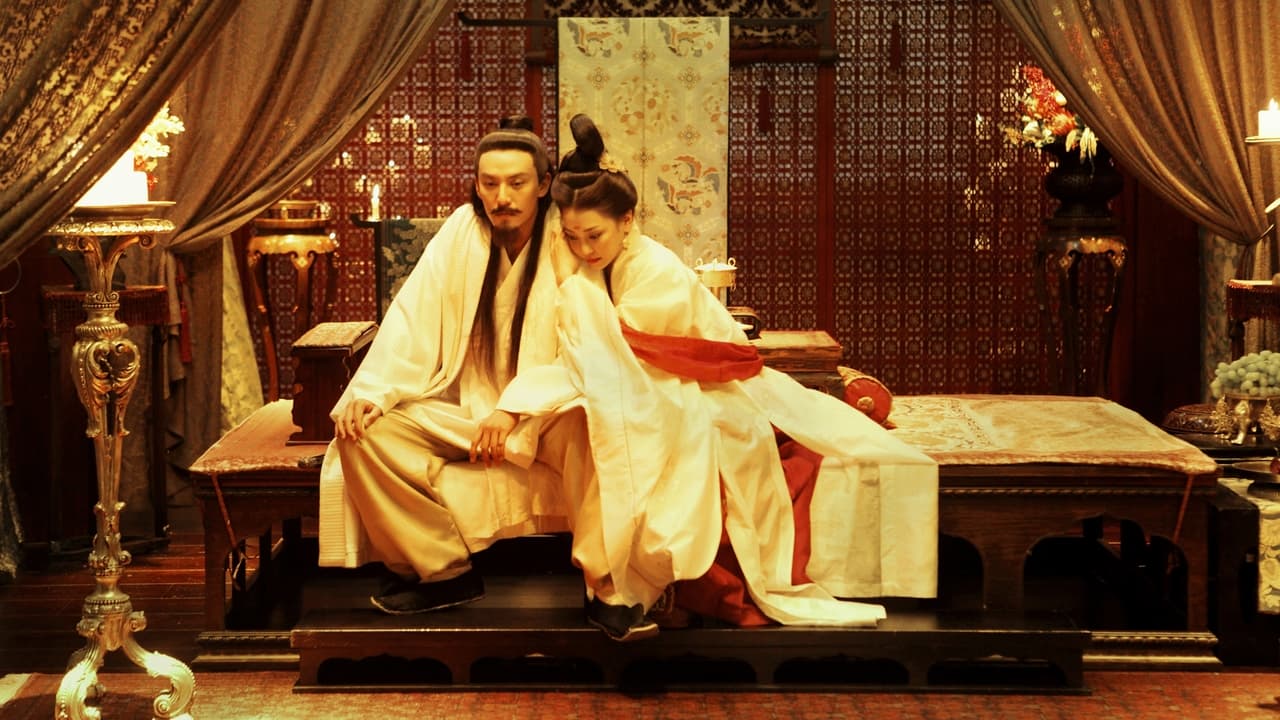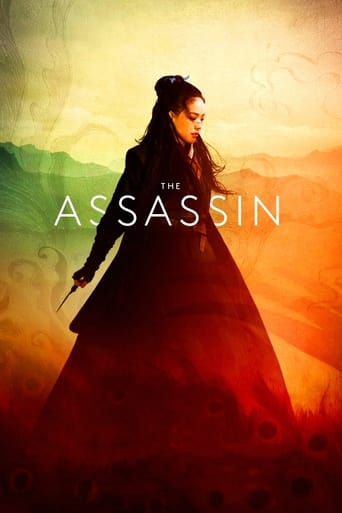

Wonderfully offbeat film!
... View MoreTruly Dreadful Film
... View MoreCrappy film
... View MoreGreat story, amazing characters, superb action, enthralling cinematography. Yes, this is something I am glad I spent money on.
... View More"The Assassin" is much better than most of the cliché, mindless, action movies produced in China. Of course, there are great films made in China such as John Woo's "Hard Boiled", "The Killer", and "Red Cliff Pt. 1 and 2", and Wong Kar Wai's "The Grandmaster"; these are just a few.One way that it stands out greatly is the cinematography. Every scene from start to finish is a visual ecstasy that enchants the audience, making them anxiously wait for a new surprisingly beautiful shot. The contrast is sharp but not in the repelling way a YouTube amateur action film is; it captures the light and dark perfectly. Hsiao-Hsen Hou shows her proficiency in contrast from the very beginning which is in black and white. The light and dark were balanced and gave depth to the scene. When the movie was displayed in full color, I was blown away. She adhered to the color wheel to combine opposing colors in the frame, adding color to the contoured contrast and creating a beautiful shot.The composition of the shots were also great. Hou used the set design and camera positioning to lead the audience's eye to the subject. I also appreciated the masterful long takes. A big problem with most movies is they cut too soon. A movie doesn't have to be like "Russian Ark" where the entire film is one take. If the camera stays where it is long enough, the audience will be able to find meaning from what the characters are feeling and what their surrounding environment is like; if that perspective changes, we start all over.This ties in with some complaints that "The Assassin" moves too slowly. There were times that I got tired, but I realized that maybe there's more to this scene where not a single character talks. Maybe if I observe the characters and environment carefully, I can get my own meaning out of it.The acting was great, and the characters were easy to understand even when they weren't speaking to each other. Also the set design was superb. All shots were realistic and on-site, the natural landscapes and man-made structures were magnificent, and it really immersed me into the film."The Assassin"'s writing is unconventional but well done, where much of the communication is through reading emotions. The characters don't say what they mean a lot of the time, but they communicate the truth from their unrelenting emotions caused by trying to deal with moral conflicts and dilemmas that they can't show to society. Many conflicts don't get resolved, characters are bound by societal demands, and the pain stays. One critique I can think of for this film is parts of the score. There was a fight scene that had a soundtrack that I thought was ill-fitting. It's probably because its composition was too complex for the time period and was paired with indigenous instruments meant for a simplistic, East Asian pace of music. This is only a minor concern and I didn't subtract an entire star just for this criticism.Overall it was a great movie: unconventional, experimental, beautiful, and emotionally realistic; "The Assassin" definitely stands out from others in the East Asian cinema, in the best way.
... View MoreTypically I've found, when a lot of critics praise a film, it often isn't that good. I'm however glad to say that is not the case with The Assassin, a film I was looking forward to watching. Despite been classified as an 'action' film, the feature often works best as a political period piece, anyone looking for a martial-arts epic perhaps wanting to focus their attention elsewhere. That being said, the fight scenes, though usually short lived, are beautifully choreographed, occasionally appearing more like a dance, sweeping you away with their gracefulness.The film centres around our self-titled assassin, Yinniang (Shu Qi), who is hailed as been 'unmatched' by her teacher, Jiacheng (Sheu Fang-yi), who took her away when she was a child and trained her in the arts of fighting. From her piercing, thousand yard stare, her straight posture and deft touch, there is never a moment when you don't believe Yinniang to be who she is, her calculated movements making her appear like water on screen. For someone who is so lovely (and tiny), Ms. Qi is phenomenal, there been moments when you can't help but shiver as she stares into the camera and right into you, eliciting the same fear her victims no doubt feel.Though Yinniang says barely a syllable throughout the film, on the rare occasion when she does speak, you are given the rarest glimpse of her compassion and humanity. Her sympathetic heart is the reason her master gives her the mission of assassinating Weibo's governor, Tian (Chang Chen), who was once her former intended husband when Yinniang was a child, Jiacheng believing the completion of this task will make Yinniang undefeatable in battle.The environments and set pieces are vivid and gorgeous, showing a delicate, flourishing world of colour and tranquillity, while the costumes are as elegant as they are majestic. Despite the film centring on a professional killer, the film does not rely on any blood, nor is there any sexual content of any kind.Moreover, the music accompanies the scenes well, though does not appear to centre around any characters or themes. The Assassin however is more a visual spectacle than anything else, one of those rare films you may need to watch more than once, in order to truly see all that the director intended, even the subtlest of images having a great impact, while the occasional use of black and white helps depict the different seasons in Yinniang's career.Themes of honour, jealousy and family occasionally feed into the narrative, and though these required more depth, there is no denying their importance during certain scenes, though the concept of black magic seemed unusually out of place. The same level of depth could have additionally been applied to some of the feature's secondary characters, whose intentions we only begin to briefly understand.Towards the end, an anti-climatic resolution presents itself to the audience, the story continuing long after the credits role, enabling the viewer to create their own particular ending to fit the leads. Considering the exactness of much of the feature, it is a little disappointing that we are provided an end that is, although conclusive, far from definitive.
... View MoreDirected by the Taiwanese Hou Hsiao-hsien and adapted from a ninth-century Tang Dynasty tale, this film stars Shu Qi as the eponymous, black-cloaked killer Nie Yinniang. Visually the work is sumptuous and stunning with glorious scenery, atmospheric sets, and lingering shots through mist or gauze. However, the plot is minimal, the narrative opaque, and the action sequences all too brief. In an interview with the "Guardian" newspaper, the director insisted: "I don't make films to communicate with an audience. I am the only person who I am speaking to." This indulgent style has won over most critics but is hard on the average viewer.
... View MoreI think the title is misleading and should be changed to overly arty piece of nonsense because that would better reflect the experience of trying to watch this without sleeping.The story is pretty much impossible to follow and jumps around to much.It is rare that I get fed up with watching a movie so early on but this one is so dull. Beautiful scenery but almost every boring scene is lingered on for ages.The action is sparse and not very well choreographed, in fact the fight sequences are themselves pretty dull and overly arty.It is hard to find anything positive to say about this movie and I am puzzled over those who gave it a good review.
... View More